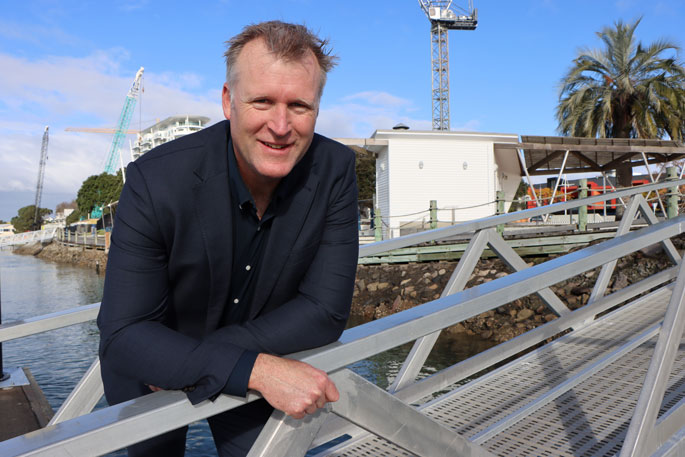Tauranga’s first council in four years will begin its official duties next week, following the election on Saturday, July 20.
The new Tauranga Mayor Mahé Drysdale and nine councillors will be sworn in at a Tauranga City Council meeting next Friday, August 2.
The election was hotly contested with 75 people competing for 10 seats at the council table.
Drysdale won the election with a landslide 6000 votes more than former Tauranga Mayor Greg Brownless, the final results show.
The nine ward councillors are Jen Scoular for Mauao/Mount Maunganui, Glen Crowther for Matua-Ōtūmoetai, Rod Taylor for Te Papa, Kevin Schuler for Bethlehem, Marten Rozeboom for Tauriko, Hautapu Baker for Welcome Bay, Rick Curach for Arataki, Steve Morris for Pāpāmoa and Mikaere Sydney for the new Te Awanui Māori seat.
Eight out of the 10 are fresh faces on the council. Rick Curach will serve his seventh term on council after missing out in 2019.
Steve Morris was part of the council in 2019 that was discharged of its duties and replaced with government-appointed commissioners in February 2021.
This time the team of 10 will have a four-year term, which is a first for New Zealand.
Mahe Drysdale told Local Democracy Reporting his priority is working with his team of nine councillors to “realise the potential of Tauranga... [Tauranga] is a good city at the moment, so it’s taking it from good to great”.
“The voters have very much said ‘we want a positive future for the city’.”
The new mayor plans to meet with each councillor individually to discuss their priorities and what skills they bring to the table.
After those meetings, Mahe says he will choose a deputy mayor and form council committees.
Asked if he was concerned that only two of the team had been on council before, he responded: “It doesn’t bother me at all.”
“I just want successful people around the table that know how to get stuff done. That’s much more important to me than having experience.
“We are a team and it’s about using everyone’s skills to deliver.”
One thing Mahe says is disappointing is the voter turnout. It was 38.7% after all the votes were counted – lower than the 2019 election, which had a 40.3% turnout.
“It’s a little bit disappointing about the turnout in voting, especially after not having that opportunity for the last four years.
“Our job as, as councillors, is to actually engage with the community. Make them feel valued and that their views are heard.
“Hopefully that will lead to them engaging more in selecting who represents them.”
LDR is local body journalism co-funded by RNZ and NZ On Air.


